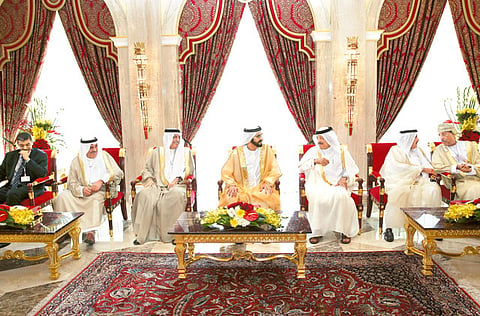Arab world face $89b food gap by 2020
Estimated at $41b in 2010, the food gap is widening and expected to reach $80 billion in 2020

Dubai: Shaikh Hamdan Bin Rashid Al Maktoum, Deputy Ruler of Dubai and Minister of Finance, has warned that the food crisis in the Arab world is getting bigger and it is expected to reach $89 billion in 2020.
“Estimated at $41 billion in 2010, the food gap is widening and expected to reach $89 billion in 2020,” he told a conference in Dubai on Tuesday.
Currently there is a need for agriculture investment worth $65-80 billion to fill this gap, Shaikh Hamdan added.
He attributed the expansion of food crisis in the Arab region to weak infrastructure, unhealthy investment environment, poor financial resource, lack of scientific researches as well as the undeveloped agriculture services.
“The recent agriculture projects in the Arab world were not effective enough and didn’t translate to the required result in food production along with the increasing demand on food.”
Echoing this, Ali Bin Saeed Al Sharhan, Chairman and President of the Arab Authority for Agricultural Investment and Development (AAAID). said, “Arab countries are facing a big shortage in food production that will be estimated at $56 billion this year depending on imports.”
Pointing to the products that top the list of food shortage in grains including wheat, rice and corn represent 53 per cent, Oil represent 13.5 per cent, dairy products represent 8.5 per cent and sugar 6.8 per cent.
“Currently we need a minimum of $5 billion annual investment to provide 25 per cent of food demand in the Arab region.”
The Arab world is prey to the global food price volatility as most countries in the region are net food importers. A shortage in food grain in 2007-08 had pushed up the food prices globally and had an adverse affect in the region, pushing up inflation, prompting countries to formulate food security policy and raise buffer stock.
Al sharhan remarked that AAAID has over 28 agriculture projects across the Arab countries while 60 per cent of these investments are in Sudan.
While most of the Arab countries are rich in agriculture resources, the total area of cultivated land represent only five per cent of the overall lands of the Arab world while it is also represent only 1.4 per cent of the fertilised area available for agriculture.
He also criticised the poor investment in the agriculture sector. “Agriculture investment in the Arab world don’t exceed 8 per cent of the total investment in the region.”
Moreover, Al Sharhan remarked that Arab mutual trade for food reported below five per cent of overall all trade among Arab countries.
He added that the meeting approved 50 per cent increase of the AAAID capital from $350 million to $525 million but the size of the crisis is quite bigger.
“What we need to face the food problem is to develop an Arabic agriculture map to provide investment in settled land to increase production as well as to build a healthy partnership with the private sector which will lead to double production,” Al Sharhan said.



